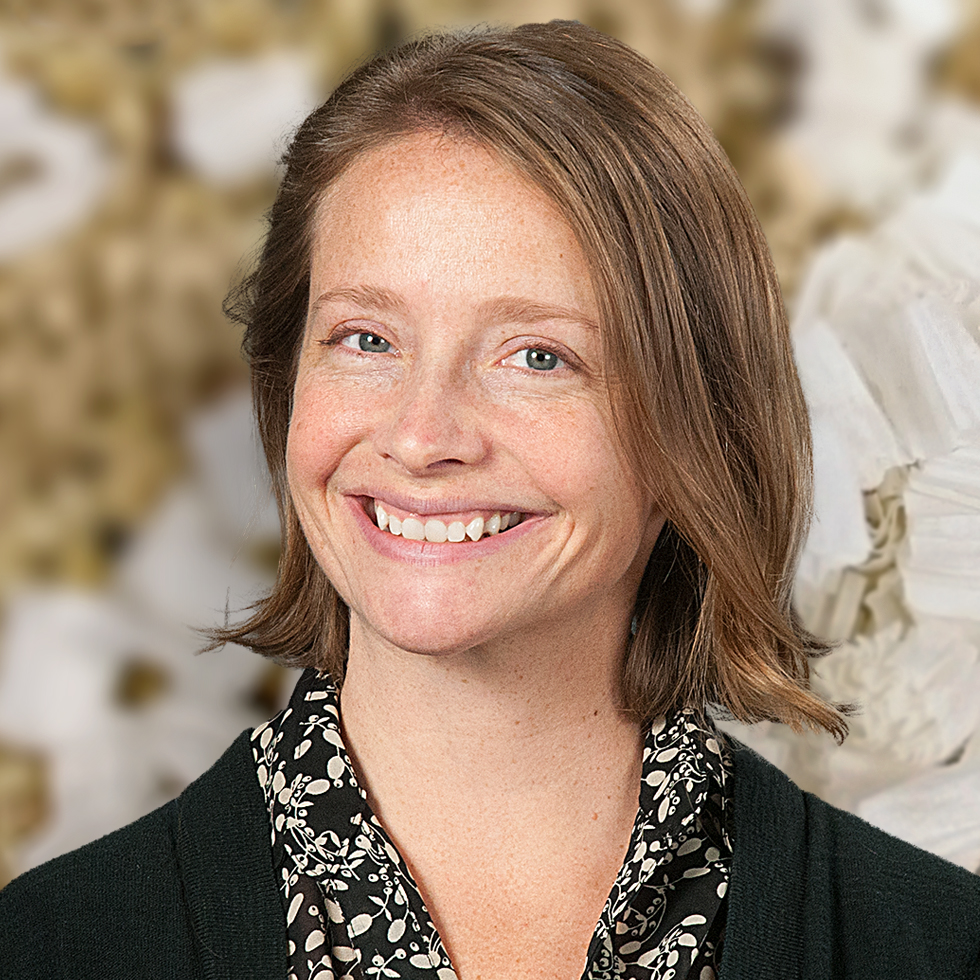FACULTY SPOTLIGHT: Elizabeth Hammock
Elizabeth Hammock is an assistant professor in the Department of Psychology, which is a department within the College of Arts and Sciences at Florida State University. She also conducts research within FSU's interdisciplinary Program in Neuroscience.
Tell us a little about your background.

Assistant Professor of Psychology and Neuroscience
I grew up around Nashville, Tennessee. Up until my ninth birthday, my parents worked a small tobacco farm in rural middle Tennessee, after which, we moved to the suburbs south of Nashville. After I graduated high school, I went straight to college at Berry College near Rome, Georgia. Right after college, I entered graduate school for a Ph.D. in neuroscience at Emory University. After my Ph.D., I did research at Vanderbilt University for about nine years.
When did you first become interested in psychology and neuroscience?
My interest in psychology and neuroscience can be traced back to formative childhood experiences in nature and books. I have always loved watching the behavior of people and other animals and learning how things work. My early childhood experiences as a farm kid in rural Tennessee probably played into my love of animals and watching their behavior. My childhood played out in its entirety before the internet was available. We had library cards, but didn’t own a ton of books, so access to new information on the farm was pretty limited.
I remember spending plenty of time with National Geographic magazine each month. The two books that I remember the most from our family book shelf were a reference book on mammals of North America and another book on how things work. I spent a lot of time with those two books, first for the pictures, and later, when I could read, for the interesting content.
In high school, I had the very good fortune of obtaining employment at the science museum in Nashville. That was an incredible job for a high school student! I got to learn more science and how to get people excited about it. I also got to do a lot of people watching.
I entered college certain that I wanted to study some aspect of behavioral biology and hopefully learn about how it works. In my second year, I was lucky enough to get admitted into an upper-level course on biological psychology. That class introduced me to the field of neuroscience. I fell in love with the material and read the course textbook from cover to cover twice that semester. The class had the perfect blend of behavior and the “how things work” physical mechanisms to permit behavior. That class made me organize my undergraduate academic path so that I could focus my preparation for eventual graduate study in neuroscience. I continued my biology major and added minors in psychology and chemistry.
What are your current research interests, and what makes you passionate about them?
I really want to know how a newborn baby “falls in love” with their caregiver and how this influences later stages of development and the long-term capacity for social behavior. I want to know more about how early experiences (loving, neglectful or abusive) can interact with our genetic endowment to develop the fundamental mechanisms needed for social behavior. Because we are trying to uncover neurobiological mechanisms, we currently test our hypotheses in mice. In this species, we have experimental control of their genetics and their experience. Mice are mammals, as are humans, so we hope that by uncovering some potential mechanisms, we can generate some plausible mechanisms for how it might work (or break) in human babies.
I am passionate about this research topic because social connection is such an important part of our mental health, and the necessary foundation for a lifetime of social connection is built in early life.
What do you want the public to know about your research? Why is your topic important?
I tell my students that I think that social behavior is the cause of, and solution to, almost all of our problems. A better understanding of the neurodevelopmental mechanisms of social behavior will ultimately let us solve some of our problems — both at the individual level and globally.
Who are your role models? Who has influenced you most in your life?
My parents are pretty awesome role models. I had a really great group of friends growing up. It is difficult to pinpoint a single role model. I have been so fortunate to know so many kind and talented people.
What brought you to Florida State University? Why do you enjoy working at FSU?
I moved here in 2014 as part of the Strategic Hiring Initiative in Brain Health and Disease. FSU is a very good environment for my research program. My colleagues are wonderful, and the students are hard-working and enthusiastic.
What is your favorite part of your job?
Doing experiments, learning new things, and working with people with high levels of expertise.
What is the most challenging part of your job?
Worrying about how to fund the research we want to do.
Also, the sadness that comes with recognizing that life is too short for all things I want to learn about and do.
How do you like to spend your free time?
I like to spend time with my family. I like to read, garden, tinker, kayak, find critters in the woods, and play trombone with the Lofty Pursuits Marching Band here in Tallahassee.
If your students only learned one thing from you (of course hopefully they learn much more than that), what would you hope it to be?
It can be very exciting to be absolutely wrong about something.

